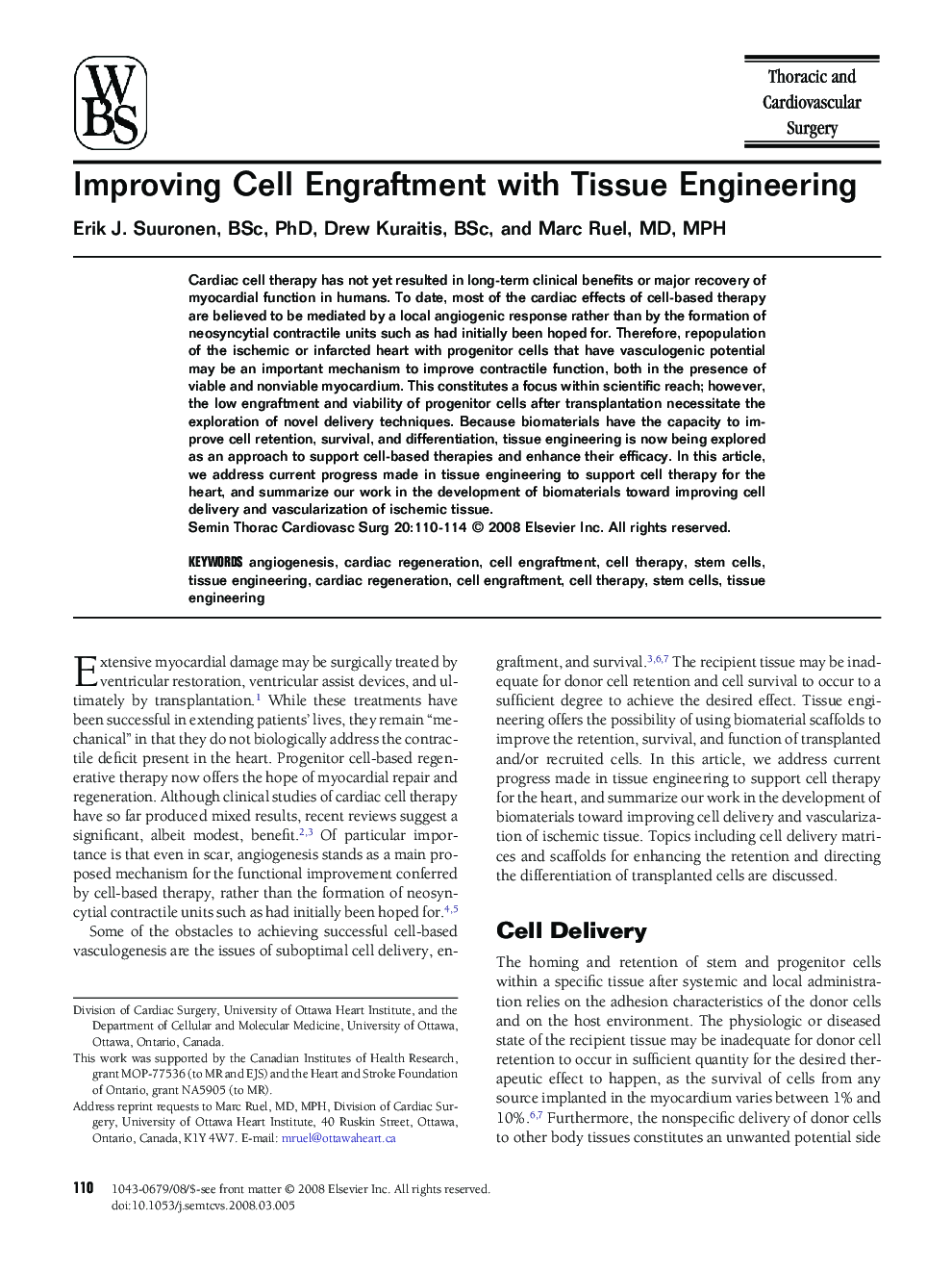| Article ID | Journal | Published Year | Pages | File Type |
|---|---|---|---|---|
| 3025661 | Seminars in Thoracic and Cardiovascular Surgery | 2008 | 5 Pages |
Cardiac cell therapy has not yet resulted in long-term clinical benefits or major recovery of myocardial function in humans. To date, most of the cardiac effects of cell-based therapy are believed to be mediated by a local angiogenic response rather than by the formation of neosyncytial contractile units such as had initially been hoped for. Therefore, repopulation of the ischemic or infarcted heart with progenitor cells that have vasculogenic potential may be an important mechanism to improve contractile function, both in the presence of viable and nonviable myocardium. This constitutes a focus within scientific reach; however, the low engraftment and viability of progenitor cells after transplantation necessitate the exploration of novel delivery techniques. Because biomaterials have the capacity to improve cell retention, survival, and differentiation, tissue engineering is now being explored as an approach to support cell-based therapies and enhance their efficacy. In this article, we address current progress made in tissue engineering to support cell therapy for the heart, and summarize our work in the development of biomaterials toward improving cell delivery and vascularization of ischemic tissue.
